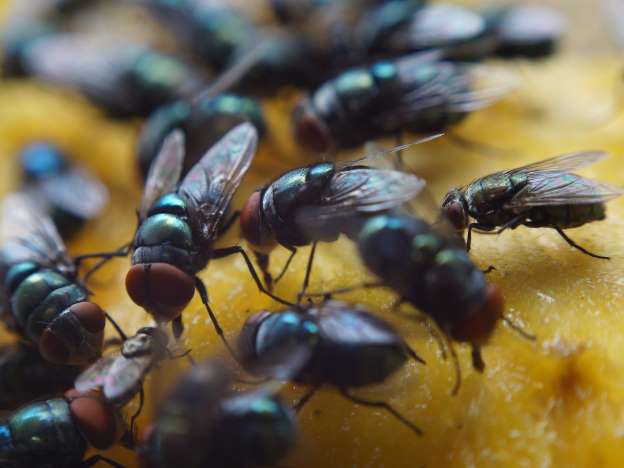If greenhouse gas emissions continue at their current rates, fly populations are predicted to double or even triple in the coming decades as changing conditions create the perfect conditions for the insects.
In a new study, Canadian scientists looked at the knock-on effects this could have as fly-borne diseases become more prevalent.
Campylobacter bacteria are one of the main causes of food-borne illness worldwide, and while they are known to contaminate meat the way they spread through populations is not fully understood.
As fluctuations in infections are known to coincide with peak fly densities during the summer months, the insects are thought to be a key link in their transmission.
The microbes have been found living on flies, and are thought to be transferred to food and between domestic animals as the insects buzz around in search of a meal.
Researchers used information about the transmission of harmful bacteria by insects and predicted booms in fly populations to estimate how the spread of disease would change.
“Insects are very sensitive to changes in the weather and thrive in warmer temperatures,” said Melanie Cousins, a PhD student who completed this work as part of her master’s thesis at the University of Guelph. "When the temperature is warmer, fly eggs hatch much more quickly meaning that populations can increase rapidly. Therefore, with the projected increases in temperatures and the increased length of the warm season, houseflies are predicted to benefit.”
Under high levels of greenhouse gas emissions, increased fly populations and activity could double cases of Campylobacter food poisoning by 2080.
They used data for the Canadian province of Ontario to create their model and data on illness rates from the past 12 years to establish its accuracy.
Their results were published in the journal Royal Society Open Science.
A separate report recently revealed that intensive agriculture and pesticides mean global insect populations are in freefall, and could be largely eliminated within a century.
However, the authors of that study predicted species like house flies, which are resilient and can adapt to pesticides, are likely to thrive as temperatures get warmer and many of their competitors and predators are wiped out.
As the research undertaken by Ms Cousins and her team was theoretical, she said due to the known impact of warm weather on flies it was worth field work to test for microbes on actual flies.
The Independent
More about: Foodpoisoning
















































